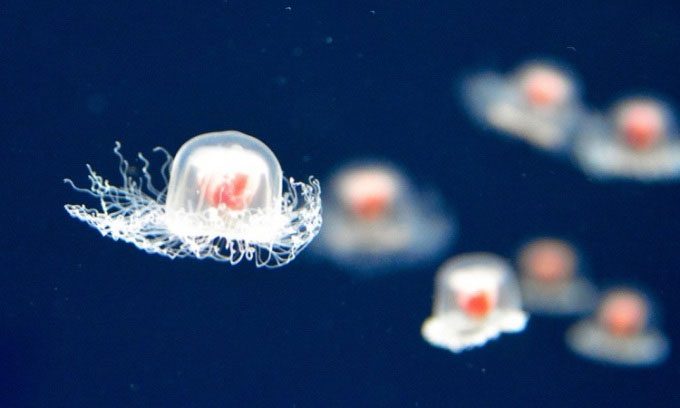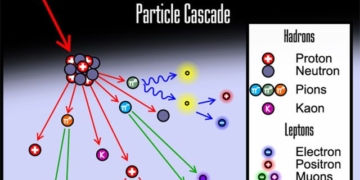The immortal jellyfish is the only species known to reverse the aging process, extending its life up to 10 times within two years.
The name of the immortal jellyfish comes from its ability to biologically live forever. This tiny, transparent creature has been drifting in the oceans since the time of the dinosaur extinction 66 million years ago, according to Science Alert. When an immortal jellyfish (Turritopsis dohrnii) ages or is injured, it can escape death by reverting back to its earlier single-cell stage. It does this by reabsorbing its tentacles and settling down in the form of an undifferentiated cell mass at the ocean floor.

Immortal jellyfish live in all oceans around the world. (Image: Asahi Shimbun).
From this point, a cell cluster called a polyp can then bud off and form a new mature shape, with each bud being smaller than a human fingernail when fully developed. More importantly, these mature buds share the same genetic makeup as the polyp. This reverse life cycle allows the immortal jellyfish to exist indefinitely.
Scientists first described the immortal jellyfish in 1883, but it wasn’t until a century later that researchers accidentally discovered its eternal life cycle while in captivity. For many years following that, research results showed that lab-cultivated populations of immortal jellyfish could revert to the polyp stage and restart their lives up to 10 times within two years.
The immortal jellyfish is the only known species that can rejuvenate after sexual reproduction. Although originally from the Mediterranean, they are now commonly found in all oceans worldwide. However, experts still do not fully understand the mechanisms that allow them to live so long. In 2022, genetic studies identified nearly 1,000 genes related to aging and DNA repair. If scientists can pinpoint which genes are present or absent in immortal jellyfish compared to their relatives, they may uncover the cellular structures behind this species’ longevity.
In 2019, a group of scientists for the first time compared gene expression in cells from an immortal jellyfish polyp with an individual that had fully developed tentacles and a body. They found differences in how some cells functioned, demonstrating that specialized cells were reprogrammed in some way, similar to resetting a clock. This does not mean that immortal jellyfish never die; they can still perish from injuries or starvation.





















































